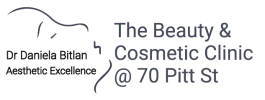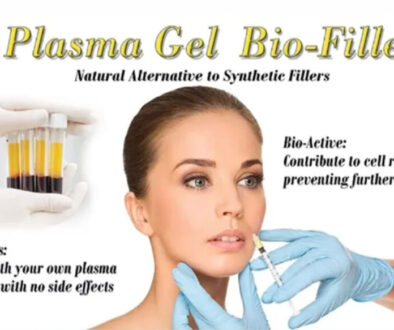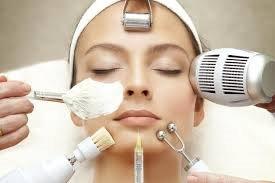Is Your Body Rusting? Are you ageing too fast?
Low Antioxidants, Especially Glutathione, Accelerate Premature Ageing
A recent conversation with a patient during a cosmetic treatment echoed a sentiment I hear often:
“I care about my health, but my main concern is to look younger than my age.”
While cosmetic medicine offers powerful tools to mask visible signs of ageing, true anti-ageing goes beyond the surface. Premature ageing often reflects deeper health issues, many of which are within our control.
As a functional, cosmetic, and anti-ageing physician, I am passionate about helping people uncover the root causes of premature ageing and guiding them toward optimal health. Through personalized consultations, targeted testing, and tailored health plans, I aim to empower my patients to make informed choices that slow the ageing process, enhance their appearance, and improve their overall well-being.
What is Premature Ageing?
Premature ageing occurs when our bodies show signs of ageing earlier than expected. While natural ageing is a gradual process, premature ageing is often accelerated by factors like stress, poor diet, and environmental exposures. Common symptoms include:
- Appearance Changes: Fine lines, wrinkles, sagging skin, and uneven skin tone.
- Physical Symptoms: Chronic fatigue, muscle weakness, and reduced stamina.
- Cognitive Decline: Memory lapses, brain fog, and difficulty concentrating.
These symptoms indicate an imbalance often linked to low levels of antioxidants.
The Rust Inside: The Impact of Low Antioxidants and Oxidative Stress
Antioxidants like glutathione, vitamins C and E, and selenium play a critical role in protecting our bodies from oxidative stress—often described as “rust” forming inside us. Oxidative stress is driven by free radicals, unstable molecules that damage our cells, DNA, and proteins, speeding up ageing and making us more vulnerable to chronic diseases.
The Power of Glutathione: The Master Antioxidant
Glutathione, often referred to as the “master antioxidant,” is one of the most powerful antioxidants in our bodies. It protects our cells, supports detoxification, regenerates other antioxidants, and strengthens our immune system. Think of glutathione as your body’s internal cleanup crew, working tirelessly to repair damage and maintain health.
When glutathione levels are optimal, our bodies are better equipped to fend off infections, reduce inflammation, and detoxify harmful substances. However, when glutathione levels are low, it can lead to a cascade of health problems.
Health Issues Linked to Low Glutathione
Low glutathione levels are associated with numerous health conditions, often tied to oxidative stress and inflammation:
- Chronic Fatigue Syndrome: Persistent tiredness linked to impaired cellular repair and detoxification.
- Autoimmune Diseases: Conditions like lupus, rheumatoid arthritis, and multiple sclerosis are worsened by oxidative stress.
- Neurodegenerative Disorders: Diseases such as Alzheimer’s, Parkinson’s, and ALS are accelerated by oxidative damage.
- Cardiovascular Diseases: Glutathione deficiency increases oxidative stress on the heart and blood vessels, raising the risk of heart disease.
- Cancer: Chronic low glutathione weakens cellular repair mechanisms, increasing cancer risk.
- Liver Disease: Glutathione is critical for liver detoxification; its deficiency can lead to liver damage and disease.
What Depletes Glutathione Levels?
Although our bodies produce glutathione naturally, several factors can deplete its levels:
- Chronic Stress: Elevated stress levels produce free radicals that drain glutathione reserves.
- Poor Diet: Low intake of nutrient-rich foods reduces the amino acids needed for glutathione synthesis.
- Toxins: Environmental toxins like pollution, pesticides, and heavy metals strain the body’s detox systems.
- Chronic Infections: Persistent infections such as hepatitis and HIV deplete glutathione as the body fights invaders.
- Ageing: Glutathione levels naturally decline with age, increasing susceptibility to oxidative damage.
How to Naturally Boost Glutathione Levels
Fortunately, there are ways to support and enhance our body’s glutathione levels through diet, supplements, and lifestyle changes.
- Eat Glutathione-Boosting Foods
- Sulfur-Rich Foods: Garlic, onions, broccoli, kale, and Brussels sprouts support glutathione production.
- High-Protein Foods: Chicken, fish, eggs, and legumes provide the building blocks for glutathione synthesis.
- Cruciferous Vegetables: Cabbage, cauliflower, and bok choy enhance liver function, where glutathione is produced.
- Vitamin C-Rich Foods: Oranges, strawberries, and bell peppers help regenerate glutathione.
- Consider Glutathione Supplements
- N-Acetyl Cysteine (NAC): A precursor to glutathione, NAC is widely used to boost levels, especially in liver support.
- Alpha-Lipoic Acid: This antioxidant helps regenerate glutathione and supports overall antioxidant function.
- Whey Protein: Provides essential amino acids for glutathione production.
- Liposomal Glutathione or IV Glutathione Injections: For those needing a direct boost, these forms offer enhanced absorption.
- Adopt Healthy Lifestyle Practices
- Regular Exercise: Moderate exercise, like walking or cycling, can naturally boost glutathione.
- Reduce Toxin Exposure: Avoid smoking, limit alcohol, and reduce exposure to environmental pollutants.
- Manage Stress: Incorporate stress-reducing techniques such as meditation, yoga, or deep breathing exercises.
Recognizing Low Antioxidant Levels
Signs of low antioxidants are often visible on our skin and affect overall health:
- Wrinkles and Fine Lines: Collagen breakdown from oxidative stress leads to reduced skin elasticity.
- Dull, Uneven Skin Tone: Free radicals cause pigmentation issues and dark spots.
- Chronic Fatigue and Brain Fog: Persistent tiredness and mental sluggishness are common.
- Weak Immune Response: Increased susceptibility to infections and slower healing.
The Importance of Testing and Monitoring Antioxidant Levels
Regular testing of antioxidant status, including blood assays and oxidative stress markers, can help identify deficiencies early. This allows us to tailor dietary, lifestyle, and supplement strategies that protect our health and slow the ageing process.
A Personalized Approach to Anti-Ageing
Premature ageing isn’t just about looking older—it’s about how we feel and function every day. By boosting our antioxidant intake, managing stress, and regularly monitoring our health, we can protect against oxidative stress and enjoy a more youthful, vibrant life.
If you’re interested in exploring how to optimize your antioxidant levels, please make an appointment so we can discuss and address your concerns.





